14 March 2017
In Breda, on the 5th of December 1964.
Where do you live and with whom?
Currently, I am living in 2 places: a few days a week in my apartment in Nijmegen, alone, and a few days a week in my parents’ house in the village Zeeland. In the past 5 years I lived there to care for my mother, and after she died, I sort of stayed. I share the house with my brother.
Who was your role model when you were a kid?
As an incurable romantic, I had many role models: Saint Theresa, the veterinary surgeon, my big brother, etc…
Why aren’t you doing the same thing now as your role model (or do you?)
Saint Theresa: I am not quite saintly enough. The vet: vaccinating and neutering pigs was not quite as romantic as I thought. My big brother: I was not brave enough to select a science study.
What is the thing in your (work or other) history that you are most proud of?
Without doubt the PhD candidates I was allowed to supervise. A few names stand out: Renske and Ana (whom I supervised when I was learning almost as much as they were) and more recently Nicolien (a Cum Laude defence).
What is it that you would like to achieve in work in the next 5 to 10 years?
For my research group: continuous development and rejuvenation. We are in a slow process of amalgamating into a cohesive clinical research group, with exciting new branches in quality of dental care and oral complications in (rare) medical conditions. For myself: I would like to learn more in that last field and further develop the collaboration with the dept. of Hematology.
For what can we wake you up?
A view of the Northern Lights, preferably while drinking beer and eating chocolate.
What is your hobby and how good are you at it?
For 15 years I played rugby, but 2 years ago I had to stop after breaking my ankle. I wasn’t particularly good at it, but I think I was a dependable force in the second row. Now I just do strength/conditioning training, and I miss the adrenaline of match days and the smell of grass and mud...
What is your biggest irritation?
I don’t think I am very irritation-susceptible (though you should ask my colleagues, they may not agree). But come to think of it: smugness and arrogance, probably.
Who would you like to invite for dinner, if you had the chance?
I would like to invite Father Emil Kapaun. He was a catholic priest and US army chaplain in WWII and the Korean War. Declared a Servant of God in 1993, and awarded the Medal of Honor in 2013. . You see I am still a romantic.
 Marie-Charlotte Huysmans, professor of Cariology and Endodontology, within the theme Reconstructive and regenerative medicine.
Marie-Charlotte Huysmans, professor of Cariology and Endodontology, within the theme Reconstructive and regenerative medicine.
In Breda, on the 5th of December 1964.
Where do you live and with whom?
Currently, I am living in 2 places: a few days a week in my apartment in Nijmegen, alone, and a few days a week in my parents’ house in the village Zeeland. In the past 5 years I lived there to care for my mother, and after she died, I sort of stayed. I share the house with my brother.
Who was your role model when you were a kid?
As an incurable romantic, I had many role models: Saint Theresa, the veterinary surgeon, my big brother, etc…
Why aren’t you doing the same thing now as your role model (or do you?)
Saint Theresa: I am not quite saintly enough. The vet: vaccinating and neutering pigs was not quite as romantic as I thought. My big brother: I was not brave enough to select a science study.
What is the thing in your (work or other) history that you are most proud of?
Without doubt the PhD candidates I was allowed to supervise. A few names stand out: Renske and Ana (whom I supervised when I was learning almost as much as they were) and more recently Nicolien (a Cum Laude defence).
What is it that you would like to achieve in work in the next 5 to 10 years?
For my research group: continuous development and rejuvenation. We are in a slow process of amalgamating into a cohesive clinical research group, with exciting new branches in quality of dental care and oral complications in (rare) medical conditions. For myself: I would like to learn more in that last field and further develop the collaboration with the dept. of Hematology.
For what can we wake you up?
A view of the Northern Lights, preferably while drinking beer and eating chocolate.
What is your hobby and how good are you at it?
For 15 years I played rugby, but 2 years ago I had to stop after breaking my ankle. I wasn’t particularly good at it, but I think I was a dependable force in the second row. Now I just do strength/conditioning training, and I miss the adrenaline of match days and the smell of grass and mud...
What is your biggest irritation?
I don’t think I am very irritation-susceptible (though you should ask my colleagues, they may not agree). But come to think of it: smugness and arrogance, probably.
Who would you like to invite for dinner, if you had the chance?
I would like to invite Father Emil Kapaun. He was a catholic priest and US army chaplain in WWII and the Korean War. Declared a Servant of God in 1993, and awarded the Medal of Honor in 2013. . You see I am still a romantic.
Related news items
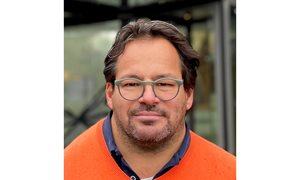
Bas Loomans appointed professor 'Oral Function and Restorative Dentistry'
10 January 2022 Bas Loomans has been appointed professor 'Oral Function and Restorative Dentistry' at the Radboud university medical center / Radboud University as of 1 December 2021. go to page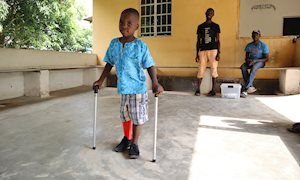
3D-printing prosthesis legs in the middle of the jungle a video call with our colleague Merel in Sierra Leone
14 December 2021 'They sometimes think I'm a sorceress,' says technical physician Merel van der Stelt, while she smiles. 'Take this lady without a lower leg. Yesterday she came here. We scanned her stump and today she already has a 3D printed prosthesis. With a prosthesis people count again'. go to page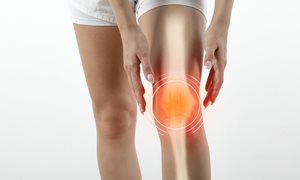
Survey of patients to address knee pain from removed meniscus
19 November 2021 Patients with persistent knee pain after meniscus removal can participate at three locations in the Netherlands in the AIR2 study by ATRO Medical, a spin-off of the Radboudumc and DSM. go to page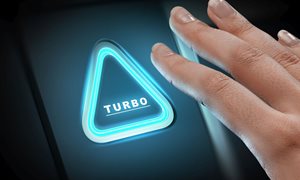
Turbo Grants for four medical-technical research projects
19 October 2021 Four TURBO grants were recently awarded to new technical-medical research proposals. The grants are part of the TURBO program, a collaboration between the University of Twente (TechMed Centre) and the Radboudumc. go to page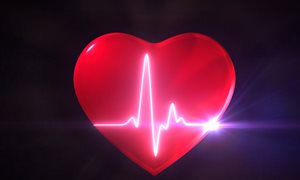
AI helps the defibrillator think
4 October 2021 In the future, the AED and the defibrillator will be able to do more than they do today. Now the devices can only give patients who need to be resuscitated a shock, but in time it will be possible, with the help of artificial intelligence, to say more about the condition of the patient. go to page
